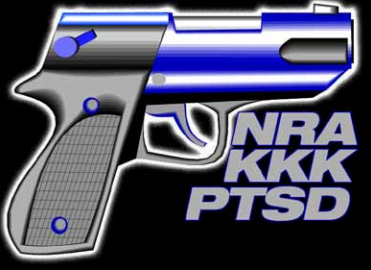By Steven Gan
Ongoing news streams throughout my day. Like many of you, I glance at some of it for only a few nanoseconds. In other cases, I’ll actually put my work aside and read through the news bulletin.
So it was back in mid-December that I was surprised to read that after a 17-month delay, largely due to resistance from the National Rifle Association (NRA), the Senate confirmed Dr. Vivek Murthy as the U.S. Surgeon General. The NRA opposed Dr. Murthy because he believes that gun violence is a public health issue.
As I read about Dr. Murthy’s confirmation, I learned that in October 2012 he had tweeted, “Tired of politicians playing politics w/guns, putting lives at risk b/c they’re scared of NRA, Guns are a health care issue.” Sadly and very ironically, two months after this tweet, 20 children and six adults at Sandy Hook Elementary in Newtown, Connecticut, were brutally massacred by a gunman with a history of mental illness. Although the incident ignited the national debate about gun control with a new sense of urgency, Congress still has failed to take meaningful steps to reduce access to firearms to the mentally ill, or even to study how guns affect the health of U.S. citizens. Too many members of Congress fear the repercussions of standing up to the NRA.
One huge reason for the absence of any study of the effects of gun violence on our citizens is that the premier public health research organization in the United States, the Centers for Disease Control and Prevention (CDC), has been operating for almost two decades under a ban against such a study. In the 1990s, the NRA persuaded Congress to pass legislation forbidding the CDC from using federal dollars to promote or advocate gun control. The restriction has since been interpreted to mean that no government research can be conducted on how guns affect health, placing an effective chokehold on any such work at the CDC. This is but one stunning example of the power of the NRA. (See Paul D. Thacker, “How Congress Blocked Research on Gun Violence,” Dec. 19, 2012.
Right after I read about Vivek Murthy’s appointment, my regular subscription to the Southern Poverty Law Center’s (SPLC) newsletter arrived in my inbox. It’s always sobering to read this publication and learn about the ongoing hate in this country and how over the past three decades the SPLC has been aggressively fighting back against homegrown terrorist groups. As much as we shake our heads about the radicalism running rampant through Al Qaeda, the Taliban, ISIS, and other groups in the Middle East, we’ve got plenty of bigoted and racist crazies who would like to take over our government right here in the United States.
One of America’s original hate groups that just won’t die is the infamous Ku Klux Klan. Over the last 150 years this group has grown, then almost shrunk to nothing, and then revived. It has reinvented itself many times over. These days, although the Klan is a shadow of its once monolithic self, several chapters have been trying to make a comeback. From handing out free bags of candy stuffed with anti-immigration literature to appearing in robes on the U.S.-Mexican border to protest President Obama’s executive action on immigration, the Klan continues to be an unusually weird and still dangerously viable organization.
The December SPLC newsletter included a very sad and frightening link to a three-part video about how a chapter of the Ku Klux Klan in Tupelo, Mississippi, is making an effort to recruit veterans. This campaign is not only because of veterans’ military training and expertise, but also because many vets return from war zones feeling lost and in need of “a family” of people who understand them. The KKK’s recruiting of veterans is not new, but what is different this time around is the knowledge that vets with PTSD make much easier, better, and more lethal Klan members. (See http://www.splcenter.org/blog/2014/12/18/vice-ku-klux-klan-recruiting-veterans-to-boost-numbers/)
Without long-term treatment, PTSD can cause severe delusions, schizophrenia, paranoia, and the like. With the VA’s backlog of treatment to our vets, many may “self-medicate” with alcohol and drugs, and some may be vulnerable to that camaraderie of KKK brothers who claim to “understand” them.
Those in our society with mental disorders who could have a violent mental meltdown at any time, including veterans suffering from PTSD, are the absolutely last people who should have access to guns—for their own safety, for their families’ safety, and for society’s safety. Is this not just common sense?
Unfortunately, common sense does not always rule. No matter how many people suffer from mental illness, no matter how hard hate groups like the KKK try to recruit veterans with PTSD, the NRA continues to ensure that the right to bear arms trumps all. Even though we’ve finally gotten a new surgeon general, the NRA’s stranglehold on our Congress blocks the very government-funded research that could lead to solutions that would make us all safer.
